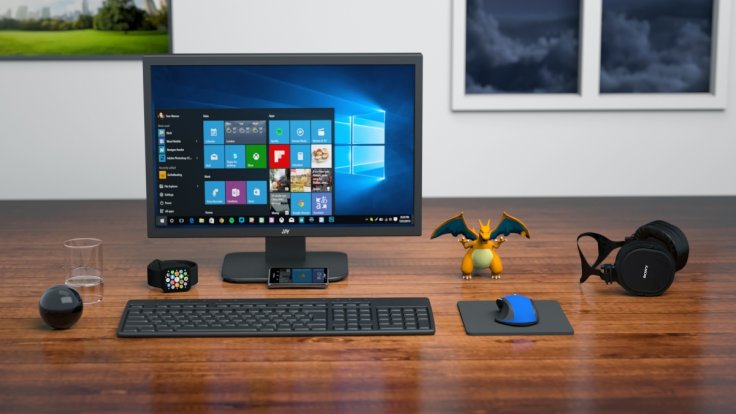There are definitely some advantages that business or enterprise PCs have that normal consumer PCs don't and one of those advantages is their resistance to virus and malware infections. Now, a new report from Canadian Enterprise Information Software (EIM) firm OpenText suggests just that. According to the company's 2020 Webroot Report findings, consumer PCs are twice as likely to get infected by viruses and malware as business PCs.
The reports say that the reason consumer PCs are more susceptible to infections is due to the fact that most of them may be running outdated operating systems such as the-now-defunct Windows 7, and that consumers don't usually employ the same security solutions that are used by businesses.
35% of consumer PCs infected more than thrice

OpenText reportedly analyzed samples from over 37 billion URLs, 842 million domains, 4 billion IP addresses, 31 million active mobile apps and 36 billion file behaviour records to compile its Webroot report. That's a lot of evidence to support the claim, and of the infected consumer devices that were analysed, more than 35 percent were infected more than three times and nearly 10 percent were affected six or more times.
A business PC is safe because it is a part of a big network of PCs that have the advantage of having higher RAM and higher overall configurations and also come with the promise of regular updates, compared to consumer PCs which are generally not so powerful and won't update unless you purchase the update and install it by yourself. However, as per the report, some business and companies risk their security when they allow their employees to connect to their corporate networks from their personal PCs.
Windows 7 at highest risk of infection
The popular Windows 7 operating system has been a hot target for hackers to push malware and phishing attacks in the outdated OS. In fact throughout last year, Webroot is reported to have observed a 640 percent increase in phishing attempts and a 125 percent increase in malware, targeting the OS that was recently taken off life support. But even though Windows 7 has officially reached its end of life, Microsoft will still be providing support for businesses that run the enterprise version of the OS.
The report also found that Facebook, Microsoft, Apple, Google, PayPal, and DropBox were the top businesses that were impersonated by cybercriminals and phishing sites last year. Meanwhile, phishing site impersonation increased 55 percent for cryptocurrency exchanges, over 50 percent for gaming sites, 40 percent for email clients and financial institutions, and 32 percent for payment services.
Disallow 'temp files' on Windows 7
Webroot found that 85 percent of the threats targeting Windows 7 hide in a user's temp, appdata, cache or windir folders, while in the case of business PCs, 54.5 percent of the threats hide in the user's temp folders. However, there seems to be a solution to this problem. The risks can be mitigated by creating a Windows Policy to disallow programs from running from the temp directory.
But there's no single silver bullet solution when it comes to cybersecurity as Hal Lona's, senior VP and CTO at OpenText suggests: "In the cybersecurity industry the only certainty is that there is no certainty, and there is no single silver bullet solution. The findings from this year's report underline why it's critical that businesses and users of all sizes, ensure they're not only protecting their data but also preparing for future attacks by taking simple steps toward cyber resilience through a defence-in-depth approach that addresses user behaviour and the best protection for network and endpoints."









